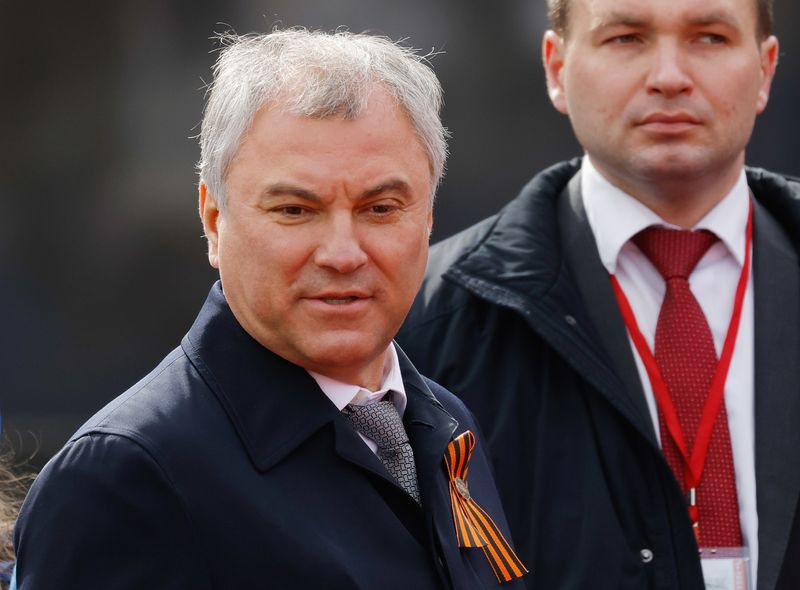By Guy Faulconbridge and Felix Light
LONDON (Reuters) -Russia warned the West on Friday that plans to try to cap the price of Russia's oil and gas exports in retaliation for the war in Ukraine would fail and ultimately lead to the instability of the United States and Europe.
The confrontation over Ukraine has prompted European Union customers to reduce their purchases of Russian energy while both the G7 and the EU are trying to impose a price cap on Russian oil and gas.
Just before the EU announced a price cap on Russian gas on Wednesday, President Vladimir Putin threatened to sever supplies if such limits were imposed, warning the West it would freeze like the wolf's tail in a fairy tale.
The Group of Seven major industrialised countries wants to impose an oil price cap that would deny insurance, finance and brokering to oil cargoes priced above a yet to be set price cap on crude and two oil products.
Russia's foreign ministry spokeswoman, Maria Zakharova, said the West did not understand how such steps would ultimately impact their own countries, which would ultimately slip up.
"The collective West does not understand: the introduction of a cap on prices for Russian energy resources will lead to a slippery floor under its own feet," Zakharova said.
Russia's top lawmaker said on Friday that the West's plans would fail and that prices would soar far beyond their attempted artificial price ceiling.
"What G7 state officials call a price 'ceiling' will become a price floor," Vyacheslav Volodin, the speaker of Russia's lower house of parliament, the Duma, wrote on his Telegram channel. "The global market is not limited to seven countries."
The remarks from Moscow indicate the depth of the confrontation with the West which Putin says is a declining U.S.-dominated coalition which aims to shackle - or even destroy - Russia. The EU says it is in an energy war with Russia.
EU energy ministers met on Friday to try to find a way to protect citizens from sky-high energy prices and prevent power utilities from collapsing.
"We are in an energy war with Russia," Czech Industry Minister Jozef Sikela said as he arrived at the emergency Brussels meeting.
'ENERGY WAR'
Western attempts to punish the world's biggest producer of natural resources ranging from oil and gas to gold, metals, coal and timber is not an easy task, especially when China, India and other consumers are still happy to continue buying.
Still, Putin's threat to reorient flows of Russian oil and gas eastwards would amount to the biggest turn in Russian energy policy since the Soviets built gas pipelines westwards to Europe from Siberia in the early 1970s.
Russia is the world's second largest oil exporter after Saudi Arabia, the world's top natural gas exporter. Europe usually imports about 40% of its gas and 30% of its oil from Russia.
Since the war began, European Union customers have pledged to reduce their reliance on Russian energy while Russia has cut or shut down supplies on three of its biggest westward gas pipelines while oil supplies have been redirected eastwards.
Russia's Gazprom (MCX:GAZP) has for years been studying the possibility for a major new gas pipeline - the Power of Siberia 2 - to travel through Mongolia taking Russian gas to China.

The proposed pipeline could carry 50 billion cubic metres (bcm) of natural gas a year, Gazprom says - slightly less than the Nord Stream 1, the currently shutdown pipeline which links Russia to Germany under the Baltic Sea.
The existing Power of Siberia pipeline, which runs from Russia to China, was launched at the end of 2019 with an annual capacity of 61 bcm per year.